Welcome back to This Week in Apps, the Extra Crunch series that recaps the latest OS news, the applications they support and the money that flows through it all.
The app industry is as hot as ever, with a record 204 billion downloads in 2019 and $120 billion in consumer spending in 2019, according to App Annie’s recently released “State of Mobile” annual report. People are now spending 3 hours and 40 minutes per day using apps, rivaling TV. Apps aren’t just a way to pass idle hours — they’re a big business. In 2019, mobile-first companies had a combined $544 billion valuation, 6.5x higher than those without a mobile focus.
In this Extra Crunch series, we help you keep up with the latest news from the world of apps, delivered on a weekly basis.
This week we look at the sad, strange death of HQ Trivia, spying app ToTok getting booted from Google Play (again!), Android 11, an enticing Apple rumor about opening up iOS further to third-party apps, Google Stadia updates, the App Store book Apple wants banned, apps abusing subscriptions and much more.
Headlines
HQ Trivia burns to the ground
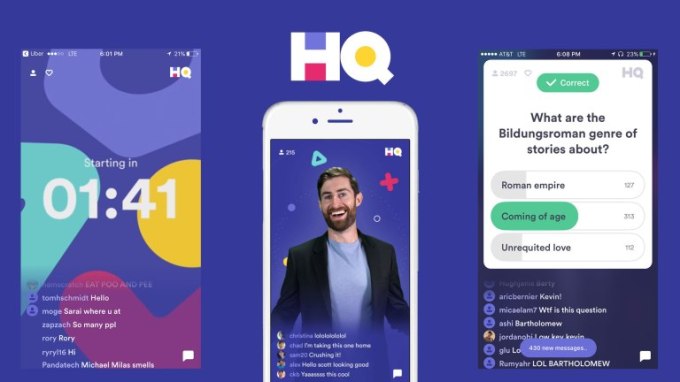
Once-hot HQ Trivia believed it had invented a new kind of online gaming — live trivia played through your phone. Investors threw $15 million into the company hoping that was true. But the novelty wore off, cheaters came in, prize money dwindled and copycats emerged. Then co-founder Colin Kroll passed away and things at HQ Trivia got worse, including a failed internal mutiny, firings and layoffs. This week, HQ Trivia announced its demise. It then hosted one last, insane night of gaming featuring drunken and cursing hosts who sprayed champagne, called out trolls and begged for new jobs. (Sure, because they exited this one so professionally.)
The app’s death can’t be attributed to any one problem, as it had so many. But perhaps the biggest takeaway is that people don’t make a single mobile game a routine daily habit, as they do with social networking or messaging apps. Also, live streaming is easier today, but it’s not necessarily cheap.
HQ Trivia could have run itself as a normal trivia app, but one that punctuated itself with live games as a means of re-engaging lapsed players and boosting user numbers. It could have even charged a subscription to play the “premium” live games without doling out huge cash prizes — instead, just funnel a portion of the subscription payments into a “prize” like an Amazon or Starbucks gift card (at least until the sponsorships rolled in.) Maybe the game wouldn’t have grown into the pop culture success it was for a time, but it may have actually lasted. HQ Trivia CEO Rus Yusupov took to Twitter shortly after the shutdown to claim the game is being sold to new owners — apparently, a last-minute fire sale. But no updates have been issued since.
Google boots spying app ToTok from Google Play… again
 In December, The New York Times reported that popular messaging app ToTok was actually a spying tool used by the government of the United Arab Emirates to track users’ conversations, location and social connections. The app was removed from the Google Play store in December while Google investigated, then reinstated in early January after changes. Google this week confirmed the app was again removed, but this time declined to explain why. Reached for comment, it noted that the enforcement was not done in response to any external direction or request. That means the U.S. government did not get involved here, rather, that Google chose to remove the app itself — likely for a policy violation.
In December, The New York Times reported that popular messaging app ToTok was actually a spying tool used by the government of the United Arab Emirates to track users’ conversations, location and social connections. The app was removed from the Google Play store in December while Google investigated, then reinstated in early January after changes. Google this week confirmed the app was again removed, but this time declined to explain why. Reached for comment, it noted that the enforcement was not done in response to any external direction or request. That means the U.S. government did not get involved here, rather, that Google chose to remove the app itself — likely for a policy violation.
Apple may allow users to switch defaults to third-party apps
You can install any calendar, email, calculator, browser or music app that you want on your iPhone. But what you can’t yet do is set them as the default. That means, when you click a link, Apple’s Safari opens. If you tap an email address, Apple Mail opens. And so on.
According to a new report from Bloomberg, Apple is considering making a change that would allow users to set their own third-party apps as the default. There’s no way that this is something Apple is just now considering, of course — Apple has been on the path to letting users change defaults since it opened up to third-party keyboards years ago. But today Apple is facing increased regulatory scrutiny — including claims of anti-competitive behavior from rivals like Spotify and questions about its app defaults during a U.S. House antitrust panel from last year. That likely has Apple considering that the time to develop this option is now rather than later.
The issue isn’t as straightforward as it sounds. Opening up its OS to third-party defaults means Apple is giving up a lot of control over the iOS/iPad OS experience. It’s also potentially opening up users to privacy and security violations, as third-party apps may mishandle user data. For example, one of Apple’s detractors, a third-party mail app, BlueMail, claims it was removed from the Mac App Store for anti-competitive reasons. Apple instead said that BlueMail was trying to override data security mechanisms that could expose users’ computers to malware and threaten their privacy.
It wouldn’t be surprising if Apple pointed to this very app — and its apparent refusal to accept help in correcting the problem — when making the case against third-party defaults.
Google debuts first developer preview of Android 11
Developers’ first look at Android 11 is here, initially available as system images for Google’s Pixel devices. The new version of Android introduces a number of new features, including those to support 5G, an API to see if a connection is unmetered so apps can play higher-res video, updates to Project Mainline (which lets Google update parts of the OS without manufacturers having to release a full OS update), support for native waterfall screens that cover devices’ edges, a new dedicated conversation section in the notification shade, a new chat bubbles API, the ability to insert images into replies from the notifications pane, new privacy and security features, including one-time permissions for sensitive data, expanded support for biometrics and more.
Google claims strengthened policies have helped clean up the Play Store
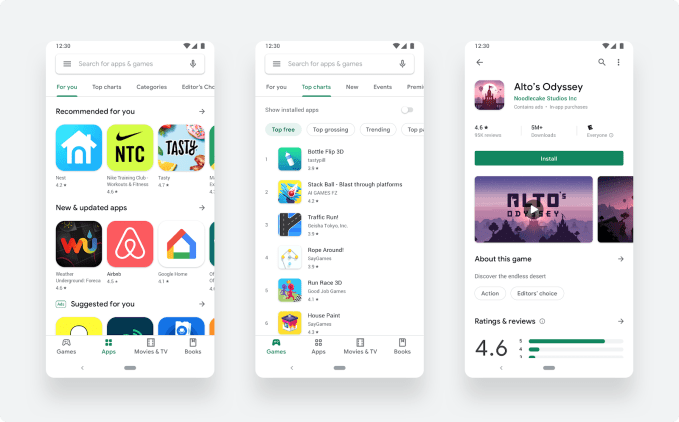
Around the same time that Google had to ban nearly 600 apps for ad fraud and disruptive mobile ad experiences and an Android parental control and stalkerware app spilled all its data, Google patted itself on the back for having created a “cleaner Play Store.” According to a post this month on the Google Security Blog, Google claims that its efforts in 2019 to strengthen Play Store policies, improve its developer approval process and work with security industry partners to scan for suspicious app behavior had led to an all-round better Play Store.
Specifically, it says a new policy around SMS and Call Log data led to a 98% decrease in apps accessing SMS and Call Log data. Its improved vetting process stopped over 790,000 policy-violating app submissions before they were ever published to the Play Store. (The company didn’t offer a year-over-year comparison, however, so it’s not clear to what extent this improved.)
Plus, updated policies for kids’ apps led to “tens of thousands” of apps being either updated or removed. Again, no prior numbers were shared for comparison, so it’s not clear how many apps Google would have removed had no policy changes occurred.
In reality, the rosy picture Google tries to paint by showcasing its improvements ends up being a reminder of how poorly vetted Play Store apps were until now. And given that Google continues to have to boot out hundreds at times in massive sweeps, it doesn’t seem like it is doing enough.
Stadia rolls out to millions more phones, but gamers aren’t happy
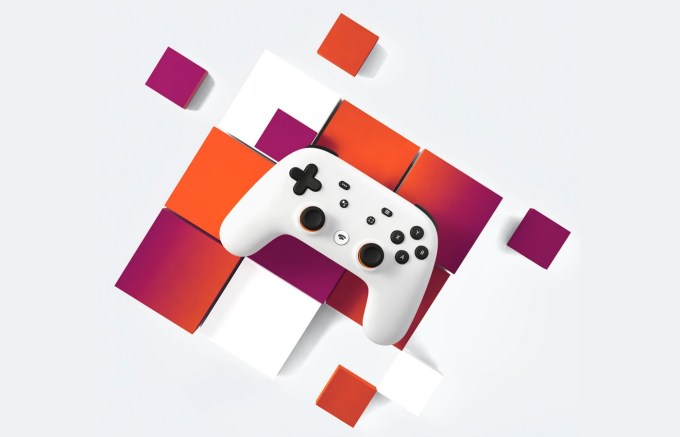
Google’s cloud gaming service Stadia had been exclusive to Pixel phones since its launch a few months ago, but this week, that changed. Google announced that on February 20, Stadia would roll out to 14 Samsung models (S8, S8+, S8 Active, Note 8, S9, S9+, Note 9, S10, S10+, Note 10, Note 10+, S20, S20+ and S20 Ultra), as well as the Asus ROG Phone, ROG Phone II, Razer Phone and Razer Phone II. All the phones will work with wireless gamepads over Bluetooth, except for the Stadia controller, which has to be plugged in, as on Pixel.
Despite the expansion, Google Stadia’s support is behind that of Microsoft’s Project xCloud, which already supports Android 6.0 and up.
The company also continues to face criticism that it’s not providing significant updates to players in a timely fashion. In an interview with Stadia’s head of the gamer experience, Andrey Doronichev, Engadget reported this week how Google is seemingly unconcerned with today’s troubles because it’s more focused on the end goal of 8K, lag-free game streaming. In the meantime, the company is being less transparent than its rivals — Microsoft’s Project xCloud and Nvidia’s GeForce Now — about Stadia’s capabilities and game release schedule. Instead, it comes across as having over-promised and under-delivered, instead of presenting gamers with the reality of Stadia’s situation today.
Top that with Google’s history of abandoning projects, and some gamers find themselves wary of Stadia’s future.
TikTok adds parental controls… in the U.K.
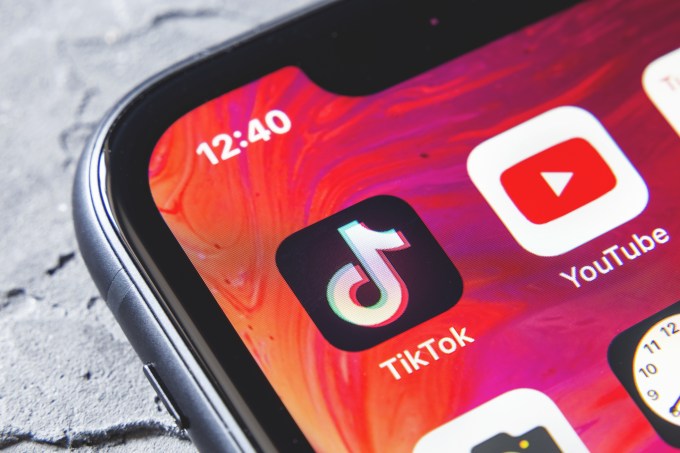
TikTok announced this week the introduction of a new set of parental controls, called “Family Safety Mode,” that’s designed to let parents set limits on their teenage children’s use of the TikTok mobile app. The suite of features includes screen-time management controls, limits on direct messages and a restricted mode that limits the appearance of inappropriate content. To use the feature, parents first create their own account, then link it to their child’s.
The parental controls have been designed with European law in mind, which is why it’s first being made available to U.K. users, with plans to roll out to other international markets in the future.
Despite the regulatory reasoning behind the controls’ creation, it’s interesting to see a social app of any sort implement in-app parental controls. Today, apps are leaving problems like screen-time management and policing of content to the platform makers, like Apple and Google, which have their own parental control systems. TikTok, a highly addictive app with a young user base, is doing something quite different by allowing parents to take control of kids’ accounts. And in doing so, it not only encourages parents to create accounts of their own (new users!), it makes it possible that more parents will permit kids to use TikTok because they believe they can police it.
Apple tries to ban former employee’s App Store exposé
Apple, heard of the Streisand effect? Apple is trying to stop the sale of a new book called “App Store Confidential” written by former Apple employee Tom Sadowski, who ran the App Store in Germany until November 2019. Apple sent a cease-and-desist to the author and publisher, claiming the book reveals business secrets of “considerable economic value.” Well now, who wants to go read this book? 🙋♀️ Too bad it’s only available in German for now. Get me a translation, stat.
Gen Z’s app addiction

App Annie this week looked at Gen Z’s app addiction, noting that the youngest users had 60% higher engagement in mobile apps per user than older demographics in 2019. Gen Z also spent more time per app, 3.8 hours on average, every month among the top 25 non-gaming apps. Apps like Snapchat, Instagram, TikTok and VSCO have been particularly successful in reaching this demographic. Indeed, 70% of VSCO’s user base, for example, is under 25 years old. Snapchat has 81% of teens using it regularly. The demographic is hugely influential as well, contributing to more than $600 billion in consumer spend per year in the U.S., the report said. More here.
How to screw your app’s users by way of subscriptions
- Don’t communicate: An interesting case study on how not to implement subscriptions was covered this week by Android Police. The site reported on a writing app called JotterPad that switched over to the subscription model without any communication with users. It even turned off cloud sync, forcing users who had paid for a one-time unlock to subscribe in order to access their data on a new device. The report notes that many developers are moving to subscriptions, but without proper and transparent messaging, the shift can come across as a bait-and-switch — especially if you’re asking users who previously paid for the app to now subscribe.
- Charge for basic functionality: A second report, also from Android Police this week, looked at the growing number of apps that are fleecing and scamming users by offering basic functionality at a high price. The report pointed to one example: a “search by image” app that offered the same functionality as Google Lens, for $200+ per year. But there are still so many subscription apps out there that are charging users for fairly basic features and functionality that used to be free and ad-supported, as a greedy cash grab. User backlash is imminent, as now nearly all “free” apps are becoming anything but — or often, just demos that don’t actually work without payment.
More Reading
- How vape companies are working around the App Store ban: TechCrunch editor Matt Burns took a deep dive into the many ways vaping apps are rethinking their businesses after Apple banned the apps from its App Store.
- European app spending to hit $23B in 2022: Sensor Tower’s new forecast for Europe sees a rise in non-gaming apps consumer spending. More here.
M&A, fundings
- Mobile analytics firm Localtyics acquired by Upland Software: Two founders are already onto their new startup, Demand Sage.
- Template maker Chroma Labs acquired by Twitter: Are Twitter stories next?
- Food delivery app in China, HungryPanda, raises $20 million: Now it wants to come to the U.S.
- Snap’s accelerator, Yellow, names its latest cohort: Startups include professional social networks, AR tools, kids entertainment and more. Each gets $150,000.
Downloads
Pandora’s new standalone app for Apple Watch

Take that, Spotify. Pandora this week announced the official launch of its new standalone app for Apple Watch that lets you listen to music and podcasts on the go, even without your iPhone. We’re not talking just offline downloads, but actually streaming to your Watch. The launch makes Pandora the first major third-party — meaning, the first besides Apple Music — to offer a standalone app for Apple Watch that streams music.
The app takes advantage of the new streaming APIs Apple introduced last year at WWDC. With watchOS 6, app developers can now create independent audio consumption experiences that no longer need to lean on the iPhone. Spotify users have long demanded some sort of untethering from the iPhone, and if it doesn’t get it together soon by implementing its own standalone Watch app, it wouldn’t be surprising to see many runners and gym-goers make a switch.
Adobe Photoshop for iPad update

In celebration of Photoshop’s 30th birthday this week, the company rolled out an anticipated update for the new Photoshop on iPad app: an Object Selection tool. The lack of this tool was one of the many criticisms users had about the watered-down version of the iPad app at launch, leading to poor reviews. Also new are additional controls for typesetting. Adobe says the improvements are helping — 50% of users have left five-star reviews and the app has topped 1 million downloads since November’s launch.
Microsoft’s unified Office app

Microsoft this week released its new unified Office app for iOS and Android. The app combines Word, Excel and PowerPoint into a single app, instead of separate downloads. The change is the latest example of big companies consolidating their apps back into one — something we’ve seen Facebook, LinkedIn, Apple, Target, Uber and others do as well.
Tweet of the Week
Could you tell these apps apart if it weren’t for their branding?
inspired by a recent post by @JuiceboxCA, I decided to take screenshots of the mobile homepages of all the major music-streaming services and compare them side-by-side.
they literally all look the same. pic.twitter.com/rFtEXJIuPm
— cherie hu (@cheriehu42) February 19, 2020
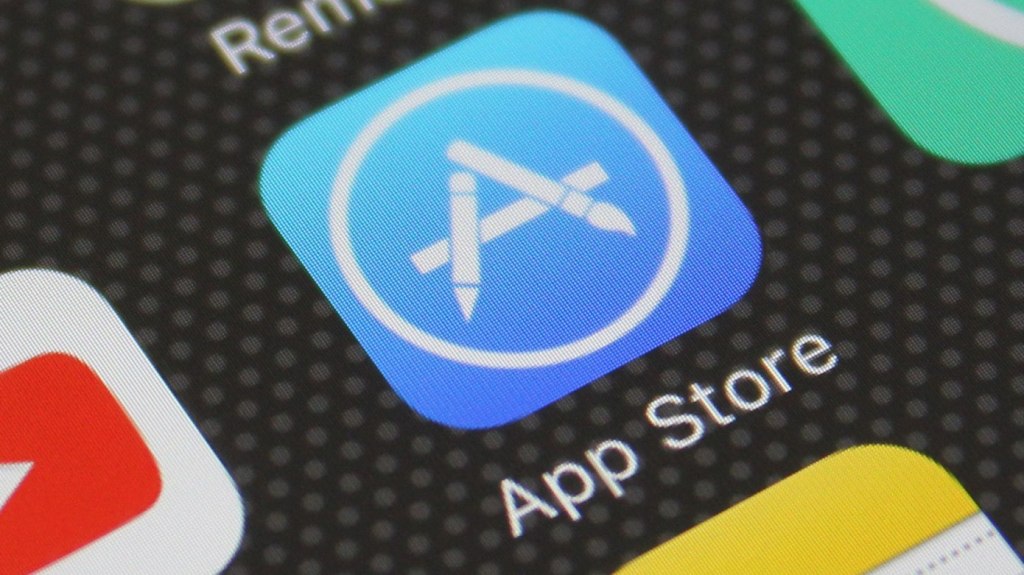





























Comment